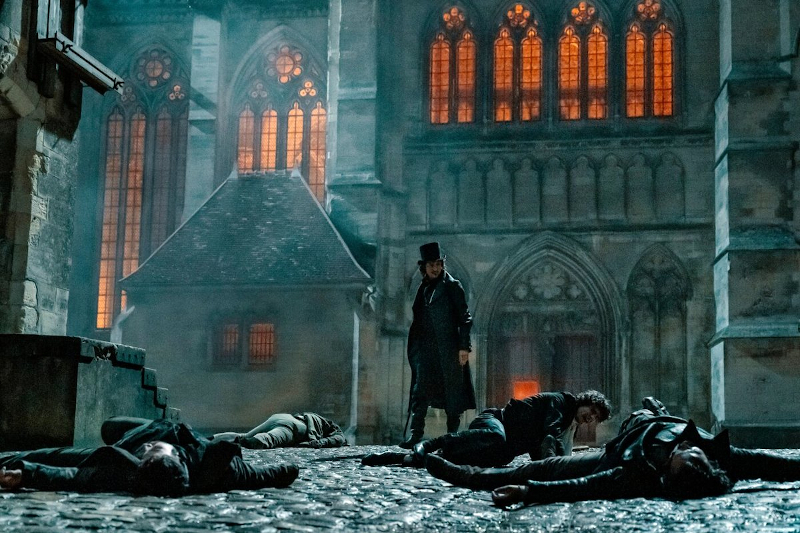Directors – Alexandre de La Patellière, Matthieu Delaporte – 2024 – France – Cert. 12a – 173m
*****
An innocent Frenchman framed and imprisoned as a Napoleonic partisan escapes to impose justice on his false accusers – new Dumas adaptation is out in UK cinemas on Friday, August 30th
There have been numerous adaptions of The Count of Monte Cristo for the screen, not to mention radio and other media, over the years; this latest one is directed by the screenwriters of The Three Musketeers: D’Artagnan and The Three Musketeers: Milady (both Martin Bourboulon, 2023), who clearly have a strong feel for Alexandre Dumas’ works.

Much of what’s here is familiar: shortly after the fall of Napoleon, on the day of his wedding to sweetheart Mercédès (Anaïs Demoustier from The New Girlfriend, François Ozon, 2014), ship’s crew member Edmond Dantès (Pierre Niney from Frantz, François Ozon, 2016) is arrested for Bonapartism, falsely accused by another crew member Danglars (Patrick Mille from the two 2023 Three Musketeers movies and Love Crime, Alain Corneau, 2010). Neither the crown prosecutor Villefort (Laurent Lafitte) nor Dantès’ friend Fernand de Morcef (Bastien Bouillon from Jumbo, Zoé Wittock, 2020) refute these allegations, although both know them to be untrue, since both have their own reasons for doing so: the prosecutor because Dantès could unwittingly ruin him, Fernand because he too is in love with and wishes to marry Mercédès.
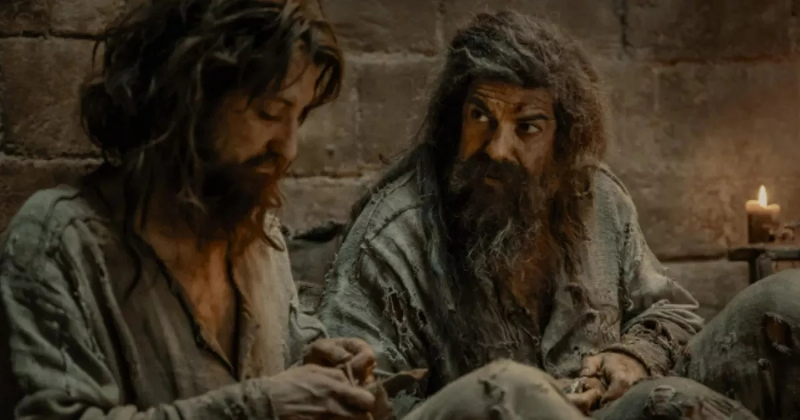
So Dantès is cast into a dungeon to rot on the island Chateau d’If, near Marseilles, spending over a decade there during which time a fellow prisoner Abbé Faria (Pierfrancesco Favino from World War Z, Marc Foster, 2013; Rush, Ron Howard, 2013) tunnels into his cell and the two prepare an escape attempt. Falling fatally ill, Faria informs Dantès of a treasure hoard on the island of Monte Cristo. Dantès escapes, finds the treasure and then, reinventing himself as the Count of Monte Cristo, sets about serving justice on his three wrongful accusers.
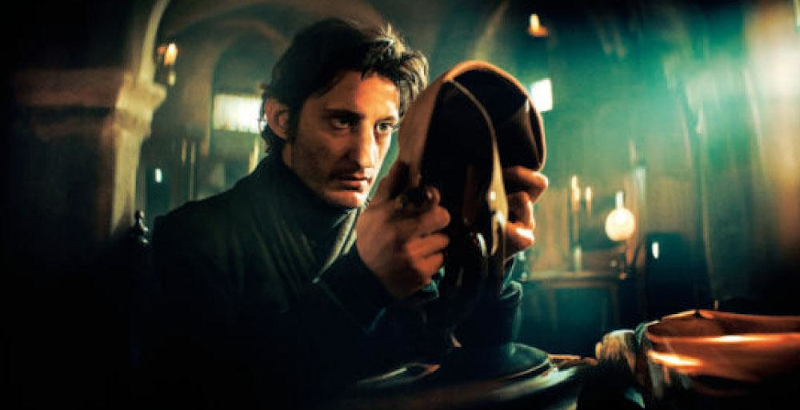
This new adaptation surprises from the outset, starting off with a storm at sea, Dantès’ ship The Pharaon going to rescue a ship in distress (it’s on fire!) and two bodies in the water: one is a woman on the verge of drowning, who will later give her name as Angèle (Adèle Simphal), the other is Dantès, who has dived in and rescues her. If this suggests an action-packed ride, although there are occasional action sequences as per the novel, the main focus wisely remains on character, intrigue, incarceration and revenge. All of which the clever adaptation delivers peerlessly thanks to flawless direction.
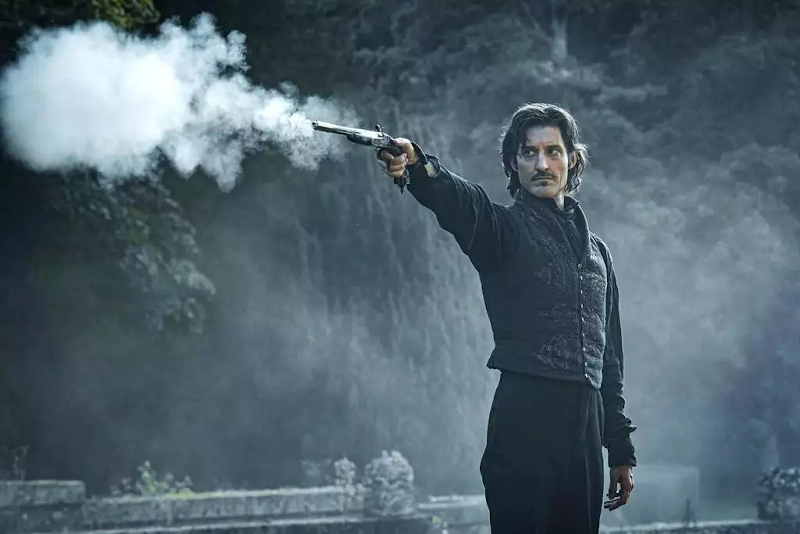
Entirely absent is the cliché of the prisoner scratching the days of his imprisonment on the cell wall to keep track of the days: the cells at the Chateau d’If are rows of underground domes with a lockable, barred, circular hatch at the top through which food and drink is lowered daily and through which the above ground jailer, doing his rounds, calls out “Vivant?” (“Alive?”) to check that no prisoner has died or escaped: a fresh and highly effective interpretation.
The screenwriters throw in additional skulduggery in the form of the prosecutor Villefort’s mistress Victoria (Julie De Bona), whose bastard son he buries at birth, neglecting to mention to the grief-stricken mother that her child is not dead at the time, the burial being covertly observed by Angèle who rescues the child and later, when the escaped Dantès discovers her sold into years of prostitution, asks him to take care of the child.
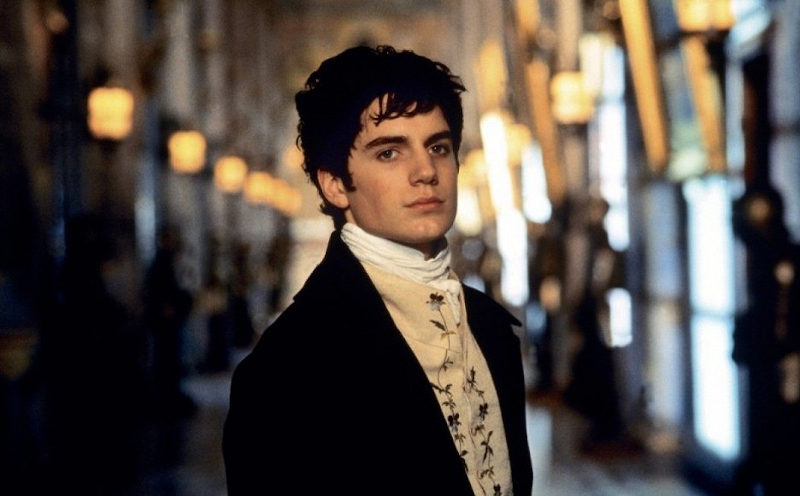
After Dantès’ escape, further younger generation characters therefore come into play: Villefort’s bastard son Andréa (Julien De Saint Jean) and Dantès ward, Faria’s daughter Haydée (Anamaria Vartolomei) both help his exact his revenge while Fernand and Mercédès’ son Albert (Vassili Schneider) is targeted as an unsuspecting victim of Haydée’s charms. Also among Dantès’ recruits is Caderousse (Stéphane Varupenne), the coward who refused to speak up for him when he was arrested back in the day, but now feels remorse and wants to help put things right.
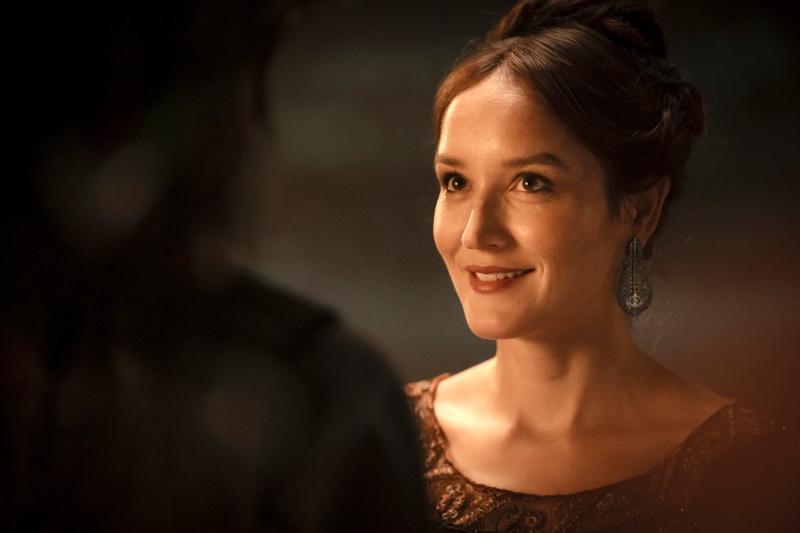
All of the above ought to be more than enough to satisfy any critic. It certainly satisfied this one. However. One scene and one performance towers above all else here. When Mercédès, now Fernand’s wife of many years and mother to their son, sees the returned Dantès for the first time, she immediately recognises him despite his being in disguise, something none of his three false accusers do. This is not done through a line of dialogue, as numerous screenwriters might have done, or via clever use of props, as Hitchcock might have done, but is instead achieved in the actress’ performance: you read it in her eyes and instantly know what she’s thinking. What Anaïs Demoustier achieves in this particular scene is one of the most remarkable pieces of screen acting I personally have ever had the pleasure to witness.
If that scene is the icing on the cake, the whole film impressively achieves everything it sets out to do and delivers a spellbinding screen adaptation of a classic adventure that feels remarkably fresh throughout. Despite its very necessary, near-three hours running length, the audience is never bored, and the time flies by. This delivers everything you could possibly want from a night out at the movies. A real treat.
The Count of Monte Cristo is out in cinemas in the UK on Friday, August 30th.
Trailer:
